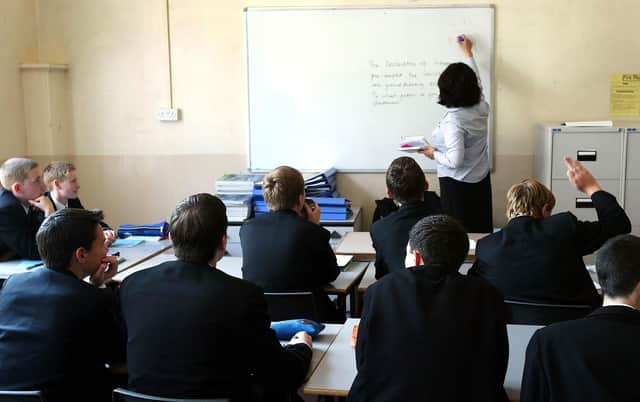Scottish education: Hayward report contains bold plans for our schools. Will SNP be as daring? – Cameron Wyllie


Professor Louise Hayward’s report on assessment and certification completes the recent trilogy of consultations on Scottish education. She is to be congratulated – it must have been very hard to balance the views of those seeking radical change (say, the removal of all exams) versus the views of us old traditionalists who continue to see ‘the Highers’ as the important benchmark for young people, and the essential means of entering university.
Still, her approach, if not entirely original, is bold. She proposes a Scottish Diploma of Achievement – a complex model which will no doubt come under a great deal of scrutiny. This retains exams at Higher and Advanced Higher and ditches them in S4, thus ending the three-year exam tyranny which has dominated Scottish education for ages.
Advertisement
Hide AdAdvertisement
Hide AdThese exams would be part of modular courses with a final grade based on a mix of examination and coursework. The proposal also requires students to do a project tackling "a significant question or problem” and is completed by a “personal pathway” that is “owned by the learner” and which reflects their broader interests and achievements. The latter is clearly a significant gesture towards those respondents to Hayward’s survey who want students to have a broader opportunity to record their achievements in terms of the four ‘capacities’ of the Curriculum for Excellence. How significant this part of the diploma would be to universities, colleges or employers remains to be seen.
Of course, her suggestions can only happen if government and its associated bodies, and, in particular, the teaching unions, are prepared to effect the changes. Teachers are already buckling; there is a fine balance to be met between their needs and those of their students.
Teachers will need more time to take on further levels of internal assessment – particularly of the project – and to consider criteria for the personal pathways part of the diploma. But there is a strongly felt need for radical change in our schools; it must happen soon – Education Secretary Jenny Gilruth and her team need to make bold decisions, eschewing endless committee meetings, and the opposition parties need to continue to provide positive, constructive ideas.
Professor Hayward will know that the Howie Committee in 1992 proposed a similarly bold, rather different model, which I greatly admired at the time, and which sank without trace. She must stay optimistic.
Comments
Want to join the conversation? Please or to comment on this article.
